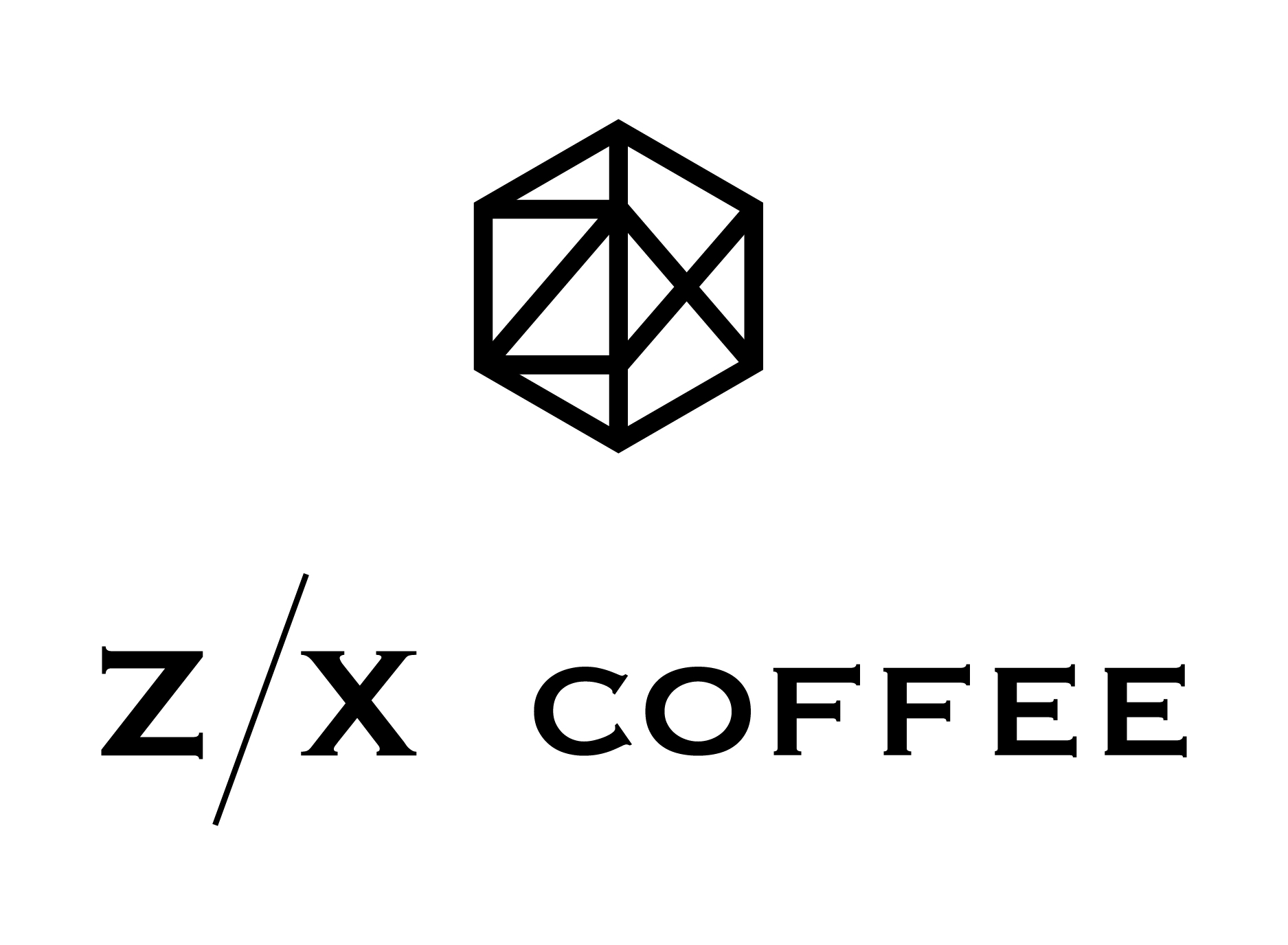スペシャリティーコーヒーと普通のコーヒーの違いは何か?名古屋のスペシャリティーコーヒー店が解説(What Sets Specialty Coffee Apart from Regular Coffee?)
スペシャリティーコーヒーと普通のコーヒーの違いは何か?名古屋のスペシャリティーコーヒー店が解説(What Sets Specialty Coffee Apart from Regular Coffee?)
こんにちは、名古屋のスペシャリティーコーヒーセレクトショップ、Z/X coffee新栄です。
今回は、スペシャリティーコーヒーと普通のコーヒーの違いは何か?について解説します。
スペシャリティコーヒーと普通のコーヒー(一般的なコモディティコーヒー)には、いくつかの明確な違いがあります。それらは、品質、生産過程、味わい、そして価値観に基づいています。以下に詳しく解説します。
1. 品質の違い
スペシャリティコーヒー:
世界的な基準である「SCA(スペシャルティコーヒー協会)」の採点基準で、100点満点中80点以上を獲得した高品質なコーヒー。
欠点豆(欠陥のある豆)が極めて少なく、均一性が高い。
栽培、収穫、加工、焙煎、抽出まで、各工程で細心の注意が払われる。
普通のコーヒー:
品質基準はさまざまで、多くの場合、ブレンドされている。
欠点豆が混じることもあり、品質が均一でない場合がある。
2. 生産過程の違い
スペシャリティコーヒー:
栽培: 標高が高い山岳地帯で育てられることが多く、品種、土壌、気候条件が厳選される。
収穫: 完熟したチェリーだけを手摘みで収穫する。
加工: ナチュラル、ウォッシュド、ハニーなど、豆の特性を引き出す方法が選択される。
トレーサビリティ: 生産者や農園が明確で、消費者がコーヒーの背景を知ることができる。
普通のコーヒー:
栽培: 多くは大規模農場で大量生産される。
収穫: 完熟していない豆も機械で収穫されることが多い。
加工: 大量生産向けの効率的な方法が選ばれる。
トレーサビリティ: 生産地や農園情報が不明確な場合が多い。
3. 味わいの違い
スペシャリティコーヒー:
豆本来の風味特性が引き立つ。例えば、フルーティー、ナッツ、チョコレート、フローラルなど、複雑で多様な味わいを楽しめる。
バランスが良く、甘みや酸味が際立つことが多い。
高い香り、後味の余韻が豊か。
普通のコーヒー:
味がシンプルで、苦味や焦げた風味が中心になることが多い。
ブレンド豆や品質のばらつきにより、味に一貫性がない場合がある。
4. 価値観の違い
スペシャリティコーヒー:
倫理的・環境的配慮: フェアトレードや環境保護の理念を重視し、生産者に適正な収入が保証される。
消費者との繋がり: 農園や生産者の情報がオープンで、消費者がその価値を共有しやすい。
サードウェーブコーヒー文化: コーヒーを嗜好品として楽しむ新しい消費文化を牽引している。
普通のコーヒー:
大量生産・大量消費のシステムの中で流通し、コストや効率が優先される。
生産者の情報が不透明で、消費者との繋がりは希薄。
5. 価格の違い
スペシャリティコーヒー:
高品質な豆のため、価格が高い(1杯あたり300~700円以上のことも)。
一般的に単一農園や単一品種(シングルオリジン)のコーヒーが多い。
普通のコーヒー:
比較的低価格(1杯100~300円程度)。
さまざまな産地の豆を混ぜたブレンドが多い。
まとめ
スペシャリティコーヒーと普通のコーヒーの違いは、品質、生産過程、味わい、価値観、価格など多岐にわたります。スペシャリティコーヒーは、豆の背景や生産プロセスにまでこだわり、風味の奥深さと飲む楽しみを提供します。一方、普通のコーヒーは、日常的に手軽に飲むためのコスト重視の商品として位置づけられています。
どちらを選ぶかは、何を重視するかによりますが、特別な体験や品質を求めるならスペシャリティコーヒーがおすすめです。
Z/X coffee 新栄
名古屋市中区新栄2-2-1イノフィスビル1階
地下鉄東山線 新栄町駅 2番出口から徒歩2分
スペシャリティーコーヒーセレクトショップ
TEL 052-684-5872
Z/X coffee新栄インスタ
https://www.instagram.com/zxcoffee_shinsakae/profilecard/?igsh=MTlydmxrM2F0MGdwOQ==
Z/X coffee新栄公式LINE
What Sets Specialty Coffee Apart from Regular Coffee?
By Z/X Coffee Shinsakae, Nagoya
Specialty coffee and regular coffee (commonly referred to as commodity coffee) differ significantly in terms of quality, production processes, flavor profiles, and values. Here's a detailed breakdown of these differences:
1. Quality
Specialty Coffee:
Scored 80 points or above on the SCA (Specialty Coffee Association) scale, indicating high quality.
Minimal defective beans, ensuring uniformity.
Meticulous attention to every stage—from cultivation to brewing.
Regular Coffee:
Quality standards vary widely, often mixed with lower-grade beans.
Defective beans may be present, leading to inconsistent quality.
2. Production Processes
Specialty Coffee:
Cultivation: Grown in carefully selected high-altitude regions with ideal soil and climate.
Harvesting: Only fully ripe cherries are hand-picked.
Processing: Methods like washed, natural, or honey processing are chosen to enhance the bean's characteristics.
Traceability: Farmers and origins are transparent, connecting consumers to the coffee's story.
Regular Coffee:
Cultivation: Typically mass-produced on large-scale farms.
Harvesting: Often done by machines, including unripe beans.
Processing: Prioritizes efficiency for high-volume production.
Traceability: Limited or nonexistent information about origins.
3. Flavor Profile
Specialty Coffee:
Highlights the bean's natural flavors, such as fruity, nutty, chocolaty, or floral notes.
Balanced sweetness, acidity, and bitterness, with a refined aroma and lingering aftertaste.
Regular Coffee:
Simplistic flavor, often dominated by bitterness or burnt notes.
Taste consistency is lower due to mixed bean qualities.
4. Values
Specialty Coffee:
Ethical and Sustainable Practices: Emphasis on fair trade and environmental stewardship, ensuring fair income for farmers.
Consumer Connection: Open information about the origin fosters a stronger connection between producer and consumer.
Cultural Shift: Represents the third wave coffee movement, elevating coffee as an artisanal beverage.
Regular Coffee:
Primarily operates within a mass-production model, focusing on cost-efficiency.
Producers' stories and sustainability efforts are rarely highlighted.
5. Pricing
Specialty Coffee:
Higher price reflects the bean's quality and traceability (usually ¥300–¥700+ per cup).
Often single-origin, showcasing the unique attributes of a specific farm or region.
Regular Coffee:
Budget-friendly (typically ¥100–¥300 per cup).
Commonly a blend of beans from various origins for cost and flavor balance.
Summary
Specialty coffee and regular coffee differ across multiple aspects:
Specialty coffee prioritizes quality, traceability, unique flavors, and ethical production, offering an elevated experience for the discerning consumer.
Regular coffee focuses on affordability and convenience, making it an everyday staple.
For those seeking a meaningful coffee experience with distinct flavors and a story behind every cup, specialty coffee is the way to go. Visit Z/X Coffee Shinsakae to explore the world of specialty coffee firsthand!
投稿者プロフィール
最新の投稿
 お知らせ2025年5月18日スペシャリティーコーヒー、普通のコーヒーと何が違うのか?名古屋市のスペシャリティーコーヒー店が解説(What Makes Specialty Coffee Different from Regular Coffee?)
お知らせ2025年5月18日スペシャリティーコーヒー、普通のコーヒーと何が違うのか?名古屋市のスペシャリティーコーヒー店が解説(What Makes Specialty Coffee Different from Regular Coffee?) お知らせ2025年5月4日スペシャリティーコーヒー、最大の生産地はどこか?その特徴は?名古屋のスペシャリティーコーヒー店が解説(Specialty Coffee: Which Country Is the Largest Producer? What Are Its Characteristics? Explained by a Specialty Coffee Shop in Nagoya)
お知らせ2025年5月4日スペシャリティーコーヒー、最大の生産地はどこか?その特徴は?名古屋のスペシャリティーコーヒー店が解説(Specialty Coffee: Which Country Is the Largest Producer? What Are Its Characteristics? Explained by a Specialty Coffee Shop in Nagoya) お知らせ2025年4月27日スペシャリティーコーヒー、春の季節にマッチするのはどのような豆か?名古屋のスペシャリティーコーヒー店が解説(What Kind of Specialty Coffee Beans Match the Spring Season?)
お知らせ2025年4月27日スペシャリティーコーヒー、春の季節にマッチするのはどのような豆か?名古屋のスペシャリティーコーヒー店が解説(What Kind of Specialty Coffee Beans Match the Spring Season?) お知らせ2025年4月19日スペシャリティーコーヒー、相性のいいチーズは何か?名古屋のスペシャリティーコーヒー店が解説(Specialty Coffee and Cheese Pairing – Explained by a Specialty Coffee Shop in Nagoya)
お知らせ2025年4月19日スペシャリティーコーヒー、相性のいいチーズは何か?名古屋のスペシャリティーコーヒー店が解説(Specialty Coffee and Cheese Pairing – Explained by a Specialty Coffee Shop in Nagoya)

